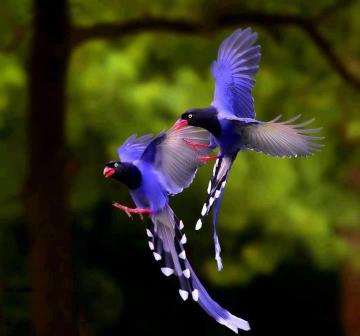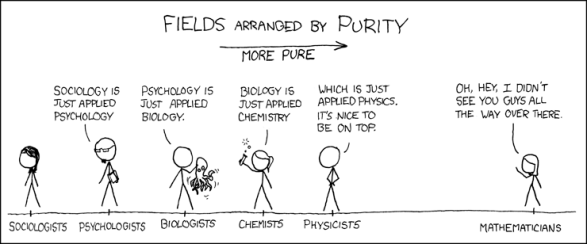Sometimes it comes at night. I lay awake in the middle of the night, and think, unbound and unbounded, and ideas come. And often, I eventually get back to sleep, right before I have to get up, and I lose it all. This time, I decided to get up and write them down. It is four in the morning, and because I’ve woken up at that approximate time the two nights before, unable to find sleep again, I decide this time that it’s not worth the wait of Morpheus, and the frustration of Massive Attack (my alarm clock song).
But before I silently get up and discreetly leave the bedroom, I think about another thing. That email I received yesterday that mildly annoyed me. It was about a questionnaire, that people working on the border of two disciplines should fill out, but I don’t remember to what endeavor. The point that bothered me was that they were requesting it from “scientists at the interface between life science and formal sciences”.
Right. In essence, life science is not a formal science. I know that what we do as ecologists is very formal in the sense that it is strict and rigorous and that I shouldn’t get touchy about this ‘informal’ adjective. Formal sciences really means sciences focused on formal systems, and formal systems are systems of abstract thoughts based on mathematics. Even if many ecologists use mathematics and statistics as a primary tool, we are focused on physical systems. Right ok. Pill swallowed. So how to define the idiosyncrasies of biology when you don’t want to give in into the stereotypes of the hierarchy of sciences? Because, yes, there is a strong hierarchy, at least in the mind of many people, scientists and laymen alike. Many think that hard science apply only to maths and physics. Same thing for the term exact science. Pure is usually used for a branch of maths only, so the rest must be quite impure. And because we biologists are not included in social and sciences either, we must be – since we are right between the world of hard/exact/formal sciences and social and human sciences – the only scientists busying our days doing science that is impure, inexact, informal, soft, asocial and inhuman. The best of all sciences. Thrilling.
Well, I prefer to think of biology as a science of complexity and variability. Because these are really the two entities we are working with and that really define the kind of struggle we face on an everyday basis. And ecology is probably the paramount of these two features. To the point that we embrace them totally. Complexity of uncountable species interacting with their environment in space and time is what attracts most of us to ecology. Variability, far from the interference it represents in physics, has become itself a major focus of interest in our discipline.
Now, it’d be good to end up on a clever conclusion, so I’ll go back to bed and hope ideas will come. By the way, getting up in the night to write down ideas in hopes of not forgetting them in the morning might work, provided you don’t start blogging. Damned, I don’t even remember what these ideas were about…





















